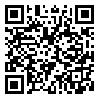دوره 8، شماره 2 - ( 3-1403 )
جلد 8 شماره 2 صفحات 95-84 |
برگشت به فهرست نسخه ها
Download citation:
BibTeX | RIS | EndNote | Medlars | ProCite | Reference Manager | RefWorks
Send citation to:



BibTeX | RIS | EndNote | Medlars | ProCite | Reference Manager | RefWorks
Send citation to:
Heydari M, Foroughi Z, Ahmadzadeh Ghasab A, Koohpaie A, Hoseini Abardeh M, Nouhi M. Medical Education Quality in the COVID-19 Era: A Policy Brief on Lesson Learned and Recommendations. EBHPME 2024; 8 (2) :84-95
URL: http://jebhpme.ssu.ac.ir/article-1-501-fa.html
URL: http://jebhpme.ssu.ac.ir/article-1-501-fa.html
Medical Education Quality in the COVID-19 Era: A Policy Brief on Lesson Learned and Recommendations. 1. 1403; 8 (2) :84-95
چکیده: (492 مشاهده)
Following the COVID-19 pandemic, numerous studies have been conducted to evaluate the quality of medical education in Iran, with a particular emphasis on virtual training. The results of these studies varied. A review of evidence suggests that the pandemic has affected the quality of medical education. Quality management of medical education during critical conditions such as the COVID-19 pandemic is far from what occurs in routine medical education processes. In order to prevent a decline in the quality of education during crises, it is necessary to adapt educational structures flexibly, particularly in healthcare delivery settings such as hospitals and comprehensive health centers. This policy brief proposes several recommendations in the area of learning environment, educational governance, developing and supporting learners and supervisors, delivering programs and curricula and developing a sustainable workforce. These recommendations can be implemented both before and during a crisis. In addition to all these suggestions, the key policy recommendation is to create and implement an Education Incident Command System (EICS). The design of an EICS is warranted to keep medical education processes active and preserve the quality of medical education before, during, and after a crisis. The EICS operates with command, control, and coordination of key players in medical education in response to emergency situations by facilitating flexible changes in medical educational processes.
نوع مطالعه: خلاصه سیاستی |
دریافت: 1403/7/15 | پذیرش: 1403/4/1 | انتشار: 1403/4/1
دریافت: 1403/7/15 | پذیرش: 1403/4/1 | انتشار: 1403/4/1
| بازنشر اطلاعات | |
 |
این مقاله تحت شرایط Creative Commons Attribution-NonCommercial 4.0 International License قابل بازنشر است. |

